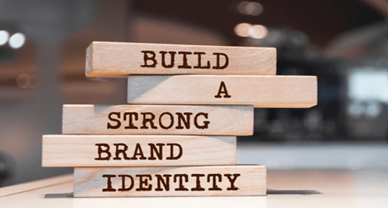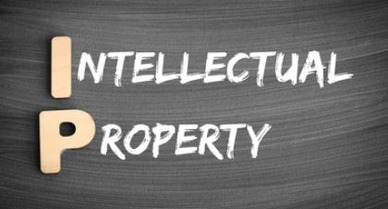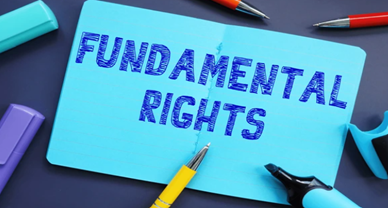Protection of Personality Rights In India: Issues And Challenges
INTRODUCTION
In today’s media driven world, the line between public interest and personal privacy has become blurred. With the rise of social media and advertising, the images, voices and personal details of individuals especially public figures are constantly in spotlight. For celebrities, whose fame is closely tied to their identity, this brings a significant risk of exploitation and to address these concerns, the concept of personality rights has emerged. A recent high-profile example is the Aishwarya Rai Bachchan case, where the Delhi High court ordered the removal of unauthorized use of her name, image and voice by websites and online sellers, protecting her identity from commercial exploitation without consent.[i]
Personality rights basically refer to an individual’s ability to protect their identity as a form of property or privacy right.[ii] Celebrities highly value these rights because of their names, images or even voices which can be exploited by businesses without consent in order to boost their sales. So, to safeguard their personal rights, famous individuals and celebrities often register their names.
When a celebrity seeks to protect their personality rights, there are two aspects to consider.
- The right to prevent unauthorized commercial use of their image or persona. This is usually addressed by treating such misuse as a tort of passing off, where someone falsely represents that their goods or services are endorsed by the celebrity. This is often referred to as the right of Publicity. It allows to control and license the commercial use of their name, likeness or other traits.
- The right to privacy, which protects the individual personal life from unwanted intrusion. This ensures that a person can maintain a private life free from unwanted publicity or public exposure[iii]
- DISTINGUISHING PRIVACY RIGHTS FROM PUBLICITY RIGHTS
In United States, the publicity rights of the celebrities got laced with privacy rights and got evolved with the development in legal precedents. Its origin can be traced back to 1953 in Haelan Laboratories, Inc. v. Topps Chewing Gum, Inc[iv]. where Haelan had exclusive licenses from baseball players to use their images on trading cards. However, Topps sold chewing gum with cards featuring the same player without permission. The court ruled that a person has a legal right in the commercial value of their photographs, independent of privacy rights and that this right can be validly licensed to others and thus the defendant Topps chewing gum was held liable for breaching the contract by using the players image without permission.
Further clarification came from U.S Supreme court in Zacchini v. Scripps-Howard Broadcasting Co.[v] where Hugo Zacchini, a performer known for his “Human cannonball” act, had his entire performance secretly videotaped and broadcast without his consent. The court ruled in his favor and established a clear distinction that right to privacy is a personal right that protects private life from being publicly exposed whereas right of publicity is a commercial right that protects a person’s ability to control and earn from their public image.
THE INDIAN SCENARIO: PROGRESS AND GAPS
India started recognizing personality rights in the 21st century, However, there are still no clear laws that fully protect all part of personality rights. Indian courts have tried to use existing intellectual Property laws to protect certain aspects like using trademark to protect name or signature and copyright laws to protect performance by an individual. However, many parts of personality rights still don’t have proper legal protection in India.
In India the concept of personality right gained popularity with the rise of entertainment industry. In R. Rajagopal v. State of Tamil Nadu[vi] also known as Auto Shankar Case, supreme court ruled that while press has freedom to report news, this freedom is not unlimited. If someone tries to publish personal details about a person’s private life without their permission, it is not allowed.

In India, the closest law that protects the personality right is Article 21[vii] of the Indian constitution, which guarantees the right to life and personal liberty. However, this doesn’t cover the commercial use of personal identity and because of these gaps Indian courts have used copyright and trademark laws to protect certain parts of person’s identity. For example, in D.M. Entertainment v. Baby Gift House (1996)[viii]. Indian Artist daler mehndi’s company, D.M Entertainment Pvt. Ltd held a registered trademark for DM and owned rights related to his image and publicity. The dispute arose when the defendants sold dolls inspired by Daler mehndi, one of which sang his song lyrics. The plaintiff claimed false endorsement, passing off and infringement of the right to publicity. Since India didn’t have specific law to protect personality rights at that time, the court used trademark laws to provide a legal remedy.
LOOPHOLES IN INDIA’S PROTECTION OF PERSONALITY RIGHTS
Currently in India, when people want to protect their personality from being used without their permission, they try to rely on existing Intellectual Property. However, these laws do not fit well for protecting personality rights. A trademark’s primary role is to show where a product comes from, not to protect a person’s identity. To get trademark protection, a person must register their name or image as trademark, and the mark must be connected to specific goods or services. Most people, however, don’t have businesses where their personality is directly linked to a product. This law allows the registration of a name signature but does not cover other important personality attributes like voice or overall image. The law mainly helps celebrities with a trade relation, leaving ordinary people vulnerable.
Indian courts sometimes use performers right under Section 38 of the Copyright Act[ix] to protect personalities, but not everyone qualifies as a “performer”. Personality rights should ideally be an inherent right of every individual, whether famous or not, yet Indian courts tend to treat personality rights as something only celebrities can claim. Also, Copyright protects works such as movies, music or books whereas personality rights focus on persons identity making them fundamentally different.
The copyright Act, 1957 does not define the word personalities or celebrities. However, it defines a “performer” under section 2 (qq)[x] as an actor, singer, musician, dancer, acrobat, juggler, lecturer or any other person who delivers a performance. A celebrity can be considered a performer under this definition and is therefore entitled to the right granted to the performer.
Similarly Trademarks Act, 1999, under section 2(m)[xi], includes ‘names’ in the definition of a ‘trademark’. This allows celebrities to register their names as trademarks to protect them from misuse. In India, many well-known celebrities like Shahrukh Khan, Priyanka Chopra, Ajay Devgn and Amitabh Bachan have registered their names as trademarks because of their strong reputation and public goodwill.
Passing off is another remedy sometimes used by the courts, but it too is insufficient. To succeed in a passing off claim, three elements must be proved: reputation, misrepresentation and damage to goodwill or reputation. However, in many cases of unauthorized use of personality, there is no damage to goodwill or reputation. Without the reputation being affected, the passing off remedy doesn’t apply[xii].
DEFENDING IDENTITY: AISHWARYA RAI BACHCHAN CASE
In 2025, famous Indian actress Aishwarya Rai Bachchan approached the Delhi High Court to stop people from using her identity without her permission. She claimed that various websites, online stores and other parties were illegally using her name, picture, voice and other personal features to make money like fake websites pretending to be official Aishwarya Rai Platforms, online shops selling mugs, T shirts and posters with her photo without her consent, AI generated images and even deepfake videos[xiii].
The court relied on the principles from the intellectual property law, privacy rights and the law of breach of confidence. It recognized that although India lacks a codified statutory right, there is an established personal right that protects a person’s identity from unauthorized commercial use. The court explained that using a famous person’s identity without consent not only causes financial loss but also hurts their dignity and reputation. In an interim order, the court directed that all websites and contents using the Aishwarya rai pictures, name, voice or signature must be removed within 72 hours. It also said that no one can use her identity in advertisements, products or online content. When someone uses Aiswarya Rai identity without her consent then that may create a false impression that she supports or endorses that content.
CLOSING THE LEGAL GAPS
The protection of personality rights cannot be fully achieved by an IPR System. The idea of personality rights doesn’t fit well within the specific rules of copyright, trademark or passing off laws. Since personality rights are unique, they don’t easily fall under any of the current intellectual property laws. The case of Aishwarya rai Bachchan illustrates how the courts are currently trying to fill the gaps by applying existing legal principles, but these remain insufficient and ad hoc solutions.
To move forward, we need clear and strong laws that keep up with fast changing technology and problem it creates. These laws should apply not just to people, but also to online platforms like social media sites, making sure they are responsible for their act. There should be an easy and quick way for people to report such problems, and these complaints should be handled without delay. Since this issue happens all over the world, countries need to work together to make sure strict rules are followed everywhere.
Author:–Dipendra Kumar Singh, in case of any queries please contact/write back to us at support@ipandlegalfilings.com or IP & Legal Filing.
REFERENCES
[i] The Hindu, ‘Delhi HC protects Rai Bachchan’s personality rights against AI misuse, unauthorised products’ (12 September 2025) https://www.thehindu.com/news/cities/Delhi/delhi-hc-protects-aishwarya-rai-bachchans-personality-rights-against-ai-misuse-unauthorised-products/article70037113.ece accessed 15 September 2025.
[ii] Nandini Bagri, ‘Personality Rights in India: A Statutory and Judicial Analysis’ (IP & Legal Filings, 19 April 2023) https://www.ipandlegalfilings.com/personality-rights-in-india-a-statutory-and-judicial-analysis/ accessed 15 September 2025.
[iii] Case Western Reserve University Law Library, ‘Personality Rights’ (Law Research Guides) https://lawresearchguides.cwru.edu/IP/personality-rights accessed 17 September 2025.
[iv] Haelan Laboratories Inc v Topps Chewing Gum Inc 202 F2d 866 (2d Cir 1953).
[v] Zacchini v Scripps-Howard Broadcasting Co 433 US 562 (1977).
[vi] R Rajagopal v State of Tamil Nadu (1994) 6 SCC 632.
[vii] Constitution of India, art 21.
[viii] D.M. Entertainment v. Baby Gift House (1996) [MANU/DE/2043/2010].
[ix] Copyright Act 1957, s 38.
[x] Copyright Act 1957, s 2(qq).
[xi] Trade Marks Act 1999, s 2(m).
[xii] Singhania Krrishan, Singhania Aishwarya Srishti, Ved Shikha and Adhangle Manas, ‘Understanding Indian Laws protecting Personality Rights’ (K Singhania & Co, 13 June 2024) https://singhanialaw.com/understanding-indian-laws-protecting-personality-rights/ accessed 16 September 2025.
[xiii] The Hindu, ‘Delhi HC protects Rai Bachchan’s personality rights against AI misuse, unauthorised products’ (12 September 2025) https://www.thehindu.com/news/cities/Delhi/delhi-hc-protects-aishwarya-rai-bachchans-personality-rights-against-ai-misuse-unauthorised-products/article70037113.ece accessed 15 September 2025.


